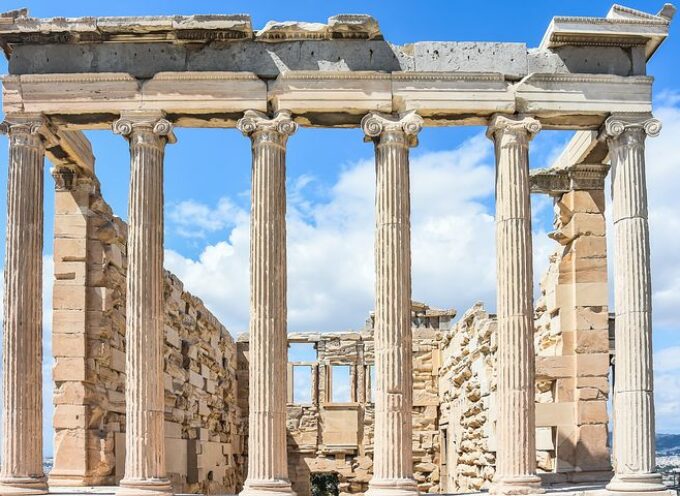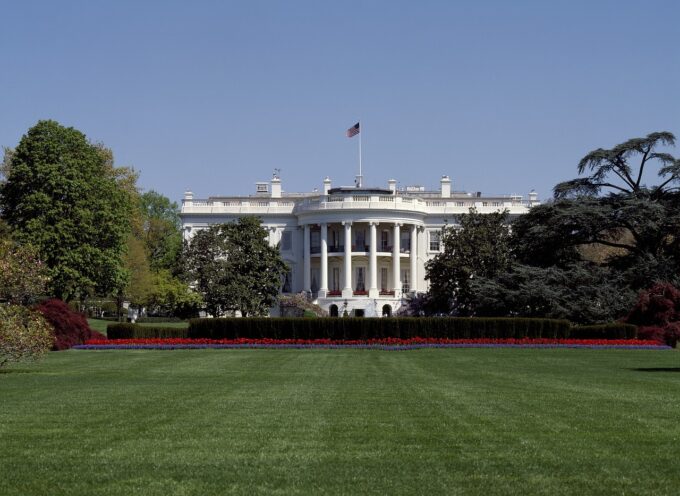Recently, President Trump announced that he was withdrawing the United States from the 2015 Paris climate agreement that aims to counteract global warming by reducing carbon emissions. He did so, according to U. N. Ambassador Nikki Haley, even though he believes climate change is real and is caused in part by pollutants.
The response to Trump’s announcement ranged from applause to indignation, with celebrations and protests erupting across the country. Those who disagreed with Trump argued that global warming is real and dangerous, is caused by human pollution, and should be reversed by reducing carbon emissions. Many of those who agreed with Trump argued that global warming is real, but that it may very well be cyclical rather than being caused by human pollution, and that we can’t draw conclusions because scientists have only been recording global temperatures for a short while.
Disagreements over the causes of climate change aside, should Christians be concerned with ecological and environmental ethics in general? Yes. In fact, the Bible’s main storyline makes very clear that we should value God’s good world. Each major “act” in the biblical story—Creation, Fall, and Redemption—should cause us to care for, rather than exploit, the natural world.
Creation (Formation)
The Bible’s opening act is “Creation.” It kicks off its story about God and the world by teaching us that God created the world and considers his handiwork “very good” (Gen 1:31). He cares for every aspect of it, including humans, animals, plants, and even the soil (Ps 104:10-14). Everything under heaven belongs to him (Job 41:11); even the animals of the forest are his (Ps. 50:10-12). In fact, the created world serves as a mirror of God’s beauty (Ps 19:1). The Bible is clear: the entire created world—in both its visible and invisible aspects—is valuable to God and should be valuable to us also. Why would we want to trash God’s good creation?
Scripture also teaches that God made human beings to be caretakers of his creation. He created us in his image and likeness (Gen. 1:26-28); one of the ways we are “like” God is through subduing (kabash) and ruling (radah) the created order (Gen. 1:26-28). Another way we are like God is tilling the soil (abad) and caring (shamar) for it (Gen. 2:15-24). Taken together, these commands imply that God wants us to be both “kings over” nature and “servants of” nature. To use language of an earlier era, God wants us to be his vice-regents, managing the world under his supervision. Do we really think the best way to steward God’s creation is by exploiting it?
Fall (De-formation)
Regrettably, the first couple, Adam and Eve, sinned against God. They were not satisfied with being like God; they wanted to be the lords of their own lives. They sinned against God and, as a result, alienated themselves from God, from each other, and from the entire created order (Gen 3). Their sin not only affected the way they managed God’s good creation (think of humans who abuse animals or dump toxic waste into water supplies); somehow it also upset the equilibrium of the created order so that the created order no longer interfaces perfectly with humanity (think of how the sun can cause skin cancer or tsunamis can kill thousands).
Therefore, while the first plot movement, Creation, portrays the ideal arrangement, the second plot movement, the Fall, portrays the world as we know it today. The universal flourishing and mutual interdependence of God’s original creation was broken as humanity’s sin introduced disarray and disorder. Given the fact that human sin disrupted the perfect interdependence that once existed between humanity, why would we want to perpetuate the disruption by further exploiting God’s good world?
Redemption (Re-formation)
In response to the first couple’s sin, God gave both a curse and a blessing. In cursing them, he made clear that the human interface with the created order would no longer be seamlessly good like it would have been. In blessing them, however, he promised to send a Savior who would save them from their sins and for a new way of life; and he promised them that he would one day save the world he had created, renewing and restoring the heavens and earth (Isa. 65:17; Rev. 21:1). When Christ returns, “creation itself will be set free from its bondage to decay and obtain the freedom of the glory of the children of God” (Rom. 8:21). This re-formed heavens and earth will be one “in which righteousness dwells” (2 Pet. 3:13).
The Bible’s teaching about cosmic redemption brings the doctrine of creation full circle. The good God who called us to be stewards of his good creation is the same God who will restore his creation. In other words, the Bible’s narrative, with creation and cosmic redemption as its bookends, provides the framework for a Christian theology of environmental stewardship. We value the earth not only because of its origin but also because of its destiny. Why would we not want to care for God’s creation, serving advance notice to a watching world that the King of the world will return one day to set things aright?
A Politically Conservative Pathway for Environmental Ethics
We have no good biblical arguments for ignoring environmental ethics, and we have every reason to care for God’s creation. That doesn’t mean conservatives will mimic secular progressive approaches to environmental ethics. In fact, we will often differ from them in our motivations, evaluations, and recommendations.
We will be motivated by Christian Scripture rather than by doomsday scenarios, on the one hand, or dollar signs, on the other. We will understand that the value in the created order is not simply its human benefit, but the way it declares God’s glory (Ps. 19:1-6). We will seek to honor the Creator through our stewardship, taking care never to worship the creation instead. We will recognize the value of holistic flourishing, which includes human economic well-being, often best achieved through free market incentives. We will advocate for the pursuit of the common good as we understand it theologically, even when it is not politically expedient.
Instead of relinquishing our duty, therefore, we should take the lead in preserving the integrity, harmony, and beauty of God’s creation; commit ourselves to carefully stewarding earth’s resources in our local contexts; be willing to change our consumption and disposal practices even at inconvenience to ourselves; and determine to speak boldly on a global level about this issue just as we should about other ethical issues, such as abortion, religious liberty, or sexual abuse.
When we do so, we honor God, love our neighbors, and preview the day when he will return to set things aright.
Subscribe
Never miss a post! Have all new posts delivered straight to your inbox.








Thankful there is more than one way to care for the environment! And no one should be more concerned than evangelical conservatives 🙂
Thank you for this eloquent explanation of how the Scriptures should lead us to view responsible environmental stewardship as a moral imperative. Please don’t dismiss the “doomsday scenarios,” though. Such current Arctic phenomena as the thawing of tundra, the dwindling of summer pack ice, and the incremental release of methane and carbon dioxide have grave implications for our future. We have reached such a late stage in environmental degradation that the most we may be able to do now is to slow its acceleration a little.